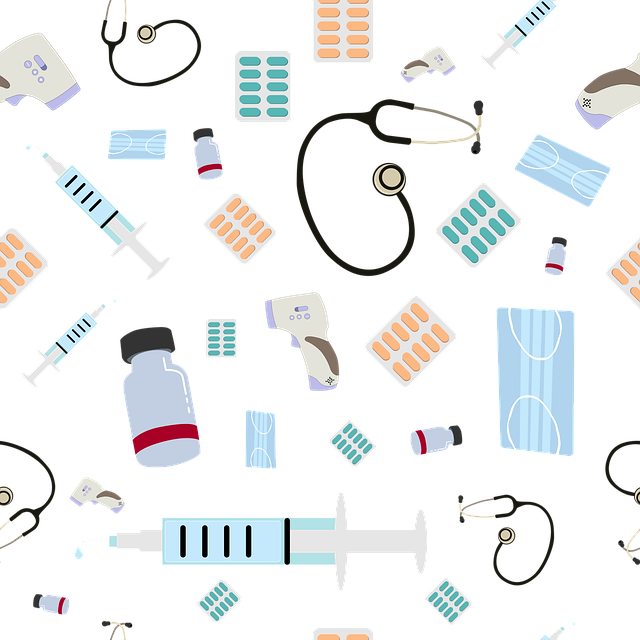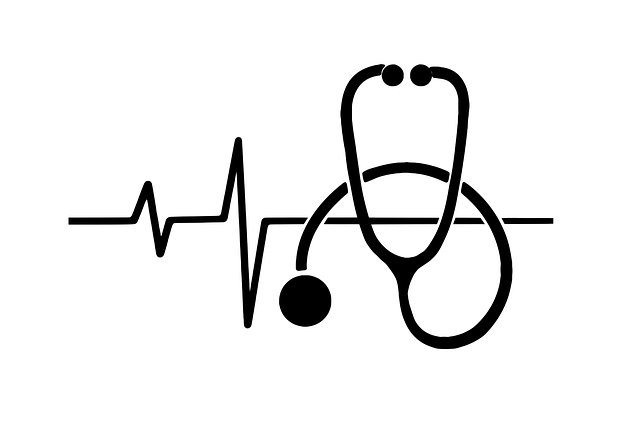Medicine Definition
The field we know that medicine is all about health care, psychologist, doctors and drugs. More of this, curious to list down the requirements of becoming a Doctor. How about […]


Drugs and Medicine are impressively quite different. Drugs will get control of your body and mind from you. Medicine is a reversal that can restore and control back to you. […]
Continue reading
The digestive organs of the human body are explained in detail and their functioning is described. The salivary glands, the esophagus, the stomach, the small intestine, the large intestine and […]
Continue reading
The field we know that medicine is all about health care, psychologist, doctors and drugs. More of this, curious to list down the requirements of becoming a Doctor. How about […]
Medicine Mondiale is a blogging website related to Health And Medicine.
Know MoreIn this video will explain how drugs flows to your body. The factor such as the speed of the tract, compositions, how the drugs will be consumed. How the drug […]
 Research shows gum disease can raise heart disease risk by up to 20%. This startling fact underscores a truth often overlooked: oral health is a window to your overall well-being. Your mouth isn’t just for smiling or savoring a meal; it’s a gateway to your body’s health. Poor dental care can ripple outward, affecting your heart, digestion, and even your immune system. Regular visits to a trusted dentist in Arlington can do more than keep your teeth sparkling. They can protect your life.
Research shows gum disease can raise heart disease risk by up to 20%. This startling fact underscores a truth often overlooked: oral health is a window to your overall well-being. Your mouth isn’t just for smiling or savoring a meal; it’s a gateway to your body’s health. Poor dental care can ripple outward, affecting your heart, digestion, and even your immune system. Regular visits to a trusted dentist in Arlington can do more than keep your teeth sparkling. They can protect your life.
Your mouth is a bustling ecosystem. Bacteria thrive there, and while many are harmless, some can wreak havoc if left unchecked. Gum disease, or periodontitis, is a prime culprit. It starts with plaque buildup, which irritates gums and can lead to inflammation. If untreated, this inflammation spreads beyond your mouth. Studies link gum disease to heart issues because bacteria can enter the bloodstream, contributing to plaque in arteries. This increases the risk of heart attacks or strokes. “The mouth is a mirror of the body’s health,” says Dr. Sarah Thompson, a dental researcher. “Neglecting it can amplify systemic problems.”
Digestive health also takes a hit. Chewing is the first step in digestion, breaking food into manageable pieces. If tooth decay or missing teeth make chewing painful, you might swallow larger food chunks, straining your stomach and intestines. This can lead to indigestion or nutrient absorption issues. Moreover, oral infections can disrupt gut bacteria balance, potentially causing bloating or other digestive woes. Keeping your teeth and gums healthy ensures your digestive system starts off on the right foot.
Your immune system feels the strain too. Chronic oral infections force your immune system to work overtime, weakening its ability to fight other illnesses. This can make you more susceptible to infections or slow recovery from common ailments. Regular dental care keeps these risks at bay, allowing your body to focus on staying strong.
Choosing a dentist in Arlington offers unique advantages. Local providers understand the community’s needs and often build long-term relationships with patients. This fosters trust and consistency, which are vital for effective care. A nearby dentist also means easier access to appointments, making it simpler to stick to a routine. Arlington’s dental practices often use advanced technology, like digital X-rays or laser treatments, which can catch issues early and improve outcomes.
Proximity encourages accountability. When your dentist is part of your community, they’re invested in your health. You’re not just a patient; you’re a neighbor. This connection can lead to personalized care plans tailored to your lifestyle, whether you’re a busy professional or a parent juggling schedules. Plus, local dentists are often well-versed in addressing regional health trends, ensuring you get care that’s both relevant and effective. To learn more about the important role of a dentist in our overall wellbeing, read also our article on Enhancing Wellness: Dentistry’s Vital Role in Health and Medicine.
Finding a great dentist in Arlington takes a bit of research. You want someone who’s skilled, approachable, and equipped to handle your needs. Here are key factors to consider:
Your smile deserves attention, and so does your health. Regular dental checkups, ideally every six months, can catch problems early, saving you pain and expense down the line. They also protect your heart, digestion, and immune system, giving you peace of mind. If you’re in Arlington, start by researching local providers. Many reputable dentists in Arlington, like those at Dentazure, offer patient-centered care backed by expertise. Schedule a visit today, and take control of your health, one smile at a time.
Mental health conditions affect millions of people. Medications can help manage symptoms and improve quality of life. But many hesitate to start treatment due to concerns about safety and side effects. Let’s explore how psychiatric medications work, their benefits, and how professionals prioritize patient safety.
Psychiatric medications balance brain chemicals to ease symptoms of conditions like depression, anxiety, or bipolar disorder. Finding the right medication often involves working closely with a psychiatrist in Chicago. These specialists assess your symptoms, medical history, and lifestyle. They tailor treatments to fit your needs. This personalized approach reduces risks and enhances effectiveness.

Medications like antidepressants or antipsychotics target specific brain functions. For example, selective serotonin reuptake inhibitors (SSRIs) boost serotonin levels to improve mood. Antipsychotics can stabilize thoughts in conditions like schizophrenia. These drugs don’t cure mental health conditions. Instead, they manage symptoms, allowing people to engage in therapy or daily activities more effectively.
Benefits vary by person. Some feel relief within weeks. Others need time to find the right drug or dose. Patience is key. Combining medication with therapy often yields the best results. Therapy addresses root causes, while medications provide stability. Together, they create a strong foundation for recovery.
Safety is a top concern for patients. Are these drugs risky? Most are safe when prescribed and monitored by professionals. Psychiatrists follow strict guidelines. They start with low doses, adjusting as needed. Regular check-ins track progress and catch issues early. This careful process minimizes harm.
Still, no medication is risk-free. Side effects can occur. Some are mild, like nausea or fatigue. Others, like weight gain or mood changes, may need attention. Open communication with your doctor is crucial. Report any unusual symptoms immediately. Your psychiatrist can adjust your plan to keep you safe and comfortable.
Side effects depend on the medication and the individual. Antidepressants might cause dry mouth or insomnia. Mood stabilizers could lead to tremors or appetite changes. Not everyone experiences these issues. When they do, side effects often fade as the body adjusts. If they persist, doctors can switch medications or tweak doses.
Rarely, serious side effects occur. For instance, some antipsychotics carry a risk of movement disorders. Antidepressants may increase suicidal thoughts in young adults during early treatment. These risks sound scary. But close monitoring catches problems before they escalate. That’s why regular appointments matter.
Misconceptions about psychiatric medications fuel stigma. Some believe these drugs are addictive or change personalities. In reality, most aren’t habit-forming when used as prescribed. They don’t alter who you are—they help you feel like yourself again. Others worry about judgment for needing medication. Mental health treatment is no different from managing diabetes or asthma. It’s about health, not weakness.
Education fights stigma. Talk openly about mental health. Share accurate information. Support friends or family seeking treatment. Normalizing these conversations creates a culture of acceptance and understanding.
Psychiatrists use evidence-based practices to protect patients. Before prescribing, they review your full health history. This includes allergies, other medications, and past reactions. They explain potential side effects and benefits upfront. Transparency builds trust.
During treatment, psychiatrists monitor your response. Blood tests or questionnaires may track how the medication affects you. If a drug isn’t working, they explore alternatives. This ongoing care ensures medications remain safe and effective over time.
You play a big role in your treatment. Be honest with your doctor. Share your symptoms, concerns, and goals. Follow the prescribed plan. Don’t stop medications suddenly—doing so can cause withdrawal or worsen symptoms. Ask questions. Understanding your treatment empowers you to make informed choices.
Also, prioritize self-care. Eat well, exercise, and sleep enough. These habits boost medication effectiveness and overall mental health. Connect with support groups or loved ones. You’re not alone on this journey.
READ ALSO: Health Care: Enhancing Quality of Life and Medical Support at Home
Psychiatric medications can transform lives. They’re not perfect, but with professional guidance, they’re safe and effective for many. Side effects are manageable with open communication and careful monitoring. Don’t let fear or stigma hold you back. Reach out to a psychiatrist to explore your options. Take the first step toward feeling better today.
Pganabolics.is has gained popularity among those seeking performance enhancement, muscle growth, and wellness support. The range of fitness and recovery products targets those looking to enhance their health. With the rising importance of chronic pain management, there’s a clear need for solutions that support both physical and mental well-being.
Integrative treatments for chronic pain combine traditional therapies, like medication and physical therapy, with alternative practices, such as acupuncture and mindfulness, allowing patients to tackle pain from multiple angles. For example, combining medication with yoga or acupuncture can effectively tackle the physical, emotional, and psychological aspects of pain.

Medications are crucial for managing chronic pain, including NSAIDs, opioids, and antidepressants, based on pain type and severity. Prolonged opioid use can lead to dependency and side effects. Integrated treatment plans often incorporate non-drug therapies, like physical therapy for strength and mobility, and mind-body practices, such as meditation, which help recondition the brain’s pain response for natural pain relief.
Complementary therapies, often seen as alternatives, significantly enhance pain management when used alongside traditional methods. Acupuncture stimulates endorphin release for natural pain relief, while massage therapy boosts circulation, reduces muscle tension, and promotes relaxation. Tai chi and yoga improve flexibility and reduce inflammation through movement and breath control.
Combining these practices with conventional treatments helps patients manage chronic pain more effectively.
Pain is not just physical; it includes psychological and emotional struggles. Chronic pain patients often face anxiety, depression, and social isolation, which can worsen their condition. Cognitive-behavioral therapy (CBT) helps reframe thoughts around pain, easing psychological distress. Combining CBT or mindfulness with medical and physical therapies offers a holistic approach, assisting patients in developing management strategies and improving their quality of life.
Merging treatments has led to more personalized pain management strategies. As research evolves, we can expect innovative approaches that empower patients with fewer side effects and longer-lasting results. Personalized care addresses pain at various levels, enhancing patient autonomy and involvement in treatment plans.
They incorporate various therapies into a comprehensive treatment plan to transform patients’ pain management. Patients can move beyond reliance on medication, using a tailored blend of medical, physical, and psychological treatments. This approach helps them achieve both physical relief and emotional strength, making lasting pain relief more accessible.
 Aging adults and individuals with chronic conditions often prefer the comfort of receiving medical care at home. In-home health care offers the necessary medical and personal support to improve the quality of life, enabling patients to maintain independence while getting the care they need.
Aging adults and individuals with chronic conditions often prefer the comfort of receiving medical care at home. In-home health care offers the necessary medical and personal support to improve the quality of life, enabling patients to maintain independence while getting the care they need.
In-home health care services are vital for those who require assistance with daily tasks, rehabilitation, or medical treatments. Providers like 1forallhhc (https://1forallhhc.com/in-home-care/) offer personalized care plans tailored to meet each patient’s unique needs. The ability to receive care at home can ease the emotional strain often associated with hospital visits or long-term care facilities.
In-home care combines medical expertise with the comfort of familiar surroundings. The benefits extend beyond just health outcomes—it’s also about maintaining dignity and quality of life. Here are some key advantages of in-home health care:
In-home health care services cover a broad spectrum of needs. Depending on the level of care required, patients can receive help with everyday tasks or specific medical treatments. Some common services include:
Choosing the right provider is critical to ensuring quality care. Here are some important factors to consider when selecting an in-home healthcare service:
Family involvement can make a huge difference in the success of in-home care. When family members are engaged, patients are more likely to feel supported, and this helps boost their mental and emotional well-being. Families can help by:
With the increasing aging population, the demand for in-home care is expected to grow significantly. Advances in telemedicine and health care technology will continue to improve the quality of care, making it easier for patients to access medical professionals without leaving their homes.
Furthermore, the push for personalized care and patient-centered approaches ensures that in-home health care will evolve to meet individual needs. It’s a model that offers flexibility, cost-effectiveness, and comfort, making it a preferred option for many.
READ ALSO: Bridging the Gap Between Traditional and Modern Medicine
In-home health care provides an invaluable service by offering medical care and personal support within the comfort of one’s home. This model’s flexibility and emotional benefits make it an ideal option for those who want to maintain their independence while ensuring they get the medical attention they need. Choosing the right provider, involving family, and staying informed about available services can ensure that the patient receives the best possible care.

The collaboration between medicine and physiotherapy stands as a cornerstone in achieving comprehensive patient care. This article delves into the vital relationship between these two disciplines, exploring how the integration of medicine enhances patient outcomes within the dynamic environment of physiotherapy clinics like Chiropractor Surrey.
Physiotherapy clinics serve as hubs for rehabilitation, injury prevention, and overall wellness. However, their effectiveness is significantly amplified when medicine becomes an integral part of the treatment paradigm. By combining the specialized knowledge of physicians with the hands-on approach of physiotherapists, a powerful synergy emerges, addressing patients’ needs holistically.
One of the primary benefits of integrating medicine into physiotherapy clinics is the enhanced diagnostic precision. Physicians bring their expertise in identifying underlying medical conditions that may contribute to musculoskeletal issues. This collaboration ensures that the root causes of patients’ concerns are accurately identified, paving the way for more targeted and effective treatment plans.
With a thorough understanding of a patient’s medical history and conditions, physiotherapists can craft personalized treatment strategies. This tailored approach allows for more efficient rehabilitation, as it addresses not only the immediate physical challenges but also considers the broader health context. Whether it’s post-surgical recovery, chronic pain management, or neurological rehabilitation, the combined efforts of medicine and physiotherapy create a comprehensive care plan.
In cases where medication is a crucial component of treatment, the collaboration between medicine and physiotherapy becomes indispensable. Physiotherapists can work in tandem with physicians to monitor the effects of medication on a patient’s physical function and adapt rehabilitation plans accordingly. This dynamic collaboration ensures that medications support, rather than hinder, the rehabilitation process.
Beyond immediate treatment, the collaboration between medicine and physiotherapy promotes preventive care and long-term wellness. Physicians can provide valuable insights into risk factors and health conditions that may impact a patient’s musculoskeletal health. This proactive approach allows physiotherapists to incorporate preventive measures into rehabilitation plans, contributing to sustained wellness and a reduced risk of future issues.
You might also want to read about Weight Loss Supplements: A Comprehensive Guide to Their Health Considerations.
The alliance between medicine and physiotherapy creates a symbiotic relationship that optimizes patient outcomes within physiotherapy clinics. Through diagnostic precision, tailored treatment strategies, medication management, and a focus on preventive care, this integrated approach ensures that patients receive comprehensive and holistic care. As the healthcare landscape continues to evolve, the importance of unlocking essential synergy between medicine and physiotherapy becomes increasingly evident in shaping a healthier and more resilient society.

Dentistry, the branch of healthcare primarily concerned with oral health, is often overlooked in discussions about overall well-being and the role of medicine. However, its significance in promoting a healthy body and preventing a wide range of medical conditions cannot be underestimated (check out Dr. Isata Panda,s Dental website for more dental care information). This article explores the vital role of dentistry in enhancing wellness and how it is intricately connected to general health and medicine.
The oral cavity serves as a gateway to the rest of the body. It is not a standalone entity but an integral part of the entire human system. The mouth-body connection is increasingly recognized by healthcare professionals, as research has revealed the profound impact of oral health on systemic well-being.
Cardiovascular diseases, such as heart attacks and strokes, have been linked to periodontal (gum) disease. The inflammation associated with gum disease can contribute to the development of atherosclerosis, a condition where arteries become clogged with fatty deposits. Proper oral care can help reduce the risk of heart-related issues.
Diabetes and oral health are closely connected. Individuals with diabetes have a higher susceptibility to gum disease, and the relationship works both ways. When gum disease is not properly controlled, it can pose difficulties in regulating blood sugar levels. Routine dental check-ups can play a crucial role in the early identification and effective management of oral problems in individuals living with diabetes.Respiratory Health
Oral infections, such as those related to periodontitis, can lead to respiratory problems when harmful bacteria enter the lungs. This can exacerbate conditions like pneumonia and chronic obstructive pulmonary disease (COPD).
Preventive dentistry is the cornerstone of enhancing wellness. Regular dental check-ups, cleanings, and good oral hygiene practices can prevent dental issues from escalating and affecting overall health. Here are some essential components of preventive dentistry:
The intersection of dentistry and medicine is growing as healthcare professionals recognize the importance of a holistic approach to patient care. Collaboration between dentists and medical doctors is becoming increasingly vital, especially in the following areas:
You might also want to read about The Difference Between Drugs And Medicine.
Dentistry’s vital role in health and medicine is indisputable. It is not merely about maintaining a sparkling smile but about safeguarding the body against numerous health risks. The mouth-body connection underscores the importance of oral health in preventing medical conditions and fostering overall wellness. By embracing a holistic approach to healthcare, recognizing the significance of preventive dentistry, and promoting collaboration between dental and medical professionals, we can ensure that dentistry continues to play a vital role in improving health and medicine.

As the convergence between wellness and medicine accelerates, some cities are becoming countries’ motifs for health innovation. One particular case that stands out is the development of the weight loss Denver clinics offer.
These clinics are changing not only how people manage their weight but also how medical institutions across the country will likely incorporate these approaches into their established care methods.
What is currently unfolding in Denver may very well be a glimpse into the future of proactive and tailored healthcare.
Weight loss in Denver is not left to fate. It is supervised. Denver Wellness & Aesthetics Centre matches patients to physicians who track progress with metabolic testing and treatment options.
This shift in our approach to diet will likely be a catalyst for primary care practices to adopt more structured physician-guided weight management plans instead of the “clinically guided” frameworks.
Clinics in Denver have adopted metabolic testing solutions like PNOE and indirect calorimetry to determine each patient’s resting metabolic rate, oxygen intake, and fat-burning capacity.
These measurements enable the formulation of custom plans, which are far superior to generic approaches. If this technology is successful in the local setting, it could subsequently be implemented in other states as part of insurance-funded obesity support systems.
In Denver, semaglutide (Ozempic) and tirzepatide (Mounjaro) are considered GLP-1 receptor agonists and not luxurious treatments but rather necessities in bolstering weight loss efforts.
These injectables are given under strict medical supervision, which mitigates risks. The prescriber-based policy extension would enable regional erasure of stigma surrounding these drugs.
Denver clinics for weight loss have the potential to change the national paradigm, redefining obesity as a medically treatable disease.
ALSO READ: 9 Frequently Asked Questions About the Florida Health Insurance Marketplace Answered
Denver’s model does not dissociate one’s health and aesthetics. Lifestyle medications paired with body contouring procedures like EmSculpt Neo and CoolSculpting Elite result in total—not purely superficial—metabolic transformation.
This model could trigger the creation of hybrid clinics: wellness clinics that integrate medical treatment and aesthetic coaching in one premise.
Perhaps the most significant national consequence of Denver’s model is its focus on prevention. Weight loss programmes in Denver help prevent obesity-related conditions like diabetes, heart disease, and some cancer.
This model indicates that healthcare and insurance companies in the United States might eventually recognise the value and long-term savings associated with a comprehensive primary care approach centred on prevention and weight management.
What is unfolding in Denver concerning weight loss goes beyond a single region; it traces steps towards a new paradigm in medical care.
There is also a deeper meaning, which goes beyond new drugs and the changes in diagnosis brought by big data, including Denver’s approach to treating obesity as a serious health issue rather than just a cosmetic one.
 Masculinity has long been entangled with societal myths and expectations. From ancient tales of heroism to modern portrayals of power, men are often pressured to conform to ideals that are neither realistic nor healthy. Male enhancement, both physical and psychological, is one such myth that has gained traction in recent years, feeding on insecurities and perpetuating outdated stereotypes.
Masculinity has long been entangled with societal myths and expectations. From ancient tales of heroism to modern portrayals of power, men are often pressured to conform to ideals that are neither realistic nor healthy. Male enhancement, both physical and psychological, is one such myth that has gained traction in recent years, feeding on insecurities and perpetuating outdated stereotypes.
Modern society bombards men with messages about how they should look, act, and perform. Media and advertising reinforce a version of masculinity that equates size, strength, and sexual performance with self-worth. This has led to a surge in the male enhancement industry, promising quick fixes to deep-rooted issues. However, as explored in The Male Coach, such narratives can harm men’s psyche rather than empower them.
The concept of enhancement often creates an illusion of inadequacy. By promoting the idea that men need to “improve” their natural state, it fosters insecurities. This can lead to unhealthy comparisons, anxiety, and even depression. Men are left chasing an unattainable ideal, overlooking the fact that masculinity isn’t defined by superficial traits.
For centuries, masculinity has been tied to physical dominance and sexual prowess. Ancient warriors were celebrated for their strength, and modern media glorifies similar ideals. Yet, these standards fail to acknowledge emotional intelligence, empathy, and individuality as aspects of being a man.
Breaking free from these myths requires a shift in how society defines masculinity. Men are more than their physical attributes or performance in specific areas of life. It’s time to celebrate a broader spectrum of traits that include vulnerability, kindness, and resilience.
Authenticity starts with self-acceptance. Men need to recognize that they are not defined by external validation or societal pressures. Building confidence from within can help resist the lure of enhancement products and practices.
Change begins when cultural narratives are challenged. Media, brands, and influencers have a responsibility to present a more inclusive and realistic portrayal of men. Celebrating diverse body types, interests, and lifestyles can help dismantle harmful stereotypes.
Taboos around male insecurities often prevent men from seeking help or discussing their struggles. Creating spaces for open dialogue can normalize these conversations and reduce stigma. Talking about emotions, challenges, and vulnerabilities is a powerful step toward redefining masculinity.
Male enhancement myths often mask deeper psychological issues. Men grappling with low self-esteem or performance anxiety may turn to enhancement solutions as a quick fix. However, addressing these concerns through mental health support can have a more lasting impact. Therapy, counseling, or even peer support groups can help men gain perspective and develop healthier coping mechanisms.
Redefining masculinity isn’t about rejecting traditional traits but expanding what it means to be a man. Strength can coexist with compassion. Confidence doesn’t require validation. Men can be leaders and caretakers, ambitious and empathetic, strong and vulnerable.
The journey starts with small, individual choices. Men can begin by questioning the narratives they’ve been taught, seeking support when needed, and embracing their unique qualities. Collectively, these shifts can create a culture where men feel empowered to be themselves, free from the constraints of outdated myths.
READ ALSO: Boosting Sexual Health: The Role of Nutrition in Fighting Erectile Dysfunction
Breaking free from the myths of male enhancement is about reclaiming control over the narrative of masculinity. It’s about rejecting societal pressures and embracing a more holistic, inclusive view of what it means to be a man. The path forward requires courage, introspection, and a willingness to challenge the status quo—but the rewards of self-acceptance and authentic living are well worth it.
For a lot of people, the Florida health insurance marketplace seems complicated due to the number of plans available.
Nonetheless, knowing the basics has the potential to transform how enrollment works, and in this case, for Floridians seeking to buy affordable quality coverage.
Below are 9 common questions that several potential buyers may inquire about in a bid to feel confident throughout the entire process.
The Florida Health Insurance Marketplace is quite simply an area where the residents of Florida can buy health plans as well as a particular health plan that applies to them.
The main goal of this marketplace in particular is to assist the buyers in the process of getting the right plan so that it meets their needs as well as their budget.
Those who are unemployed, retired, or even working part-time without insurance can use this marketplace.
To add on to this, the Florida Health package is also offered to all those residing in the state of Florida as long as they require healthcare and are not already covered by Medicare, Medicaid, or an employer.
There is only a specific time period during which you are able to enroll in the insurance package; in this case, it is typically anything between the months of November and January.
However, there are certain situations where an individual can enroll outside this date, which include marriage, childbirth, or even losing insurance due to unemployment.
There are four basic types of plans available on the marketplace: the Bronze, Silver, Gold, and Platinum plans. They defer in the monthly amount paid as well as the amount out of pocket when receiving medical care.
Generally, bronze plans are expected to pay lower amounts monthly with high deductibles, while platinum plans pay a higher price monthly for expected lower out-of-pocket costs when receiving medical care.
Yes, the marketplace assists in subdividing amounts on the basis of income so that individuals and families can help keep their monthly payment at reasonable prices as well as the amount paid out.
This in turn means that many citizens are able to receive a number of subsidies, which helps them have access to affordable health insurance.
ALSO READ: Preparing for LASIK Surgery and What Health Outcomes to Expect
With the help of the online tools available provided by the marketplace, you can search for your estimated amount to be paid by providing basic information such as the income you bring in on a monthly basis, the people that live with you, and your zip code.
Though the estimation does not cover everything, it does include if you qualify for any type of financial assistance.
In order to seek the best health plan for yourself, you would have to take into consideration your expenditures, more specifically your healthcare expenditures, as well as the services that you require and/or expect to require in the near future.
Each plan would cover different things, so make sure to check the plan that covers the doctor’s visits, prescriptions, and any treatments as needed.
Most of the plans in the marketplaces have contracted providers in a network. When enrolling in a plan, ensure that the preferred doctors along with the hospitals are packed with the coverage.
If not, then expect the costs to be higher, such as in the case with out-of-network services.
In case you manage to miss an open enrollment period and do not meet the eligibility criteria for a special enrollment period, then the option for you is to wait for next year to enroll in a plan and get coverage.
Nevertheless, short-term health plans can be obtained off of the exchange in the meantime, as they can be a good source of interim coverage.
Once you familiarize yourself with the workings of the Florida Health Insurance Exchange, you know how to look for a good and cheap insurance policy from the marketplace.
Such important information includes the dates, whether you qualify for financial help, and how to choose the right one among the available options.
It is easier to make smart choices that are beneficial for your health and budget quite a number of plan options that are available in the market.

What we eat plays a major role in how our bodies function, including sexual health. A diet rich in vitamins, minerals, and antioxidants can improve circulation and hormone levels, reducing the likelihood of developing erectile dysfunction (ED). Nutrition is a powerful tool for maintaining overall health and preventing sexual performance issues.
If you’re interested in supplements for improving sexual health, check this male enhancement guide updated on 08/30/2024 to discover the best options.
Certain foods support blood flow, which is crucial for maintaining healthy erections. Improving circulation also benefits heart health, creating a win-win for sexual and overall well-being.
Hormones play a central role in sexual performance, and nutrition can significantly impact hormone levels. Deficiencies in essential vitamins and minerals can reduce testosterone production and other hormonal imbalances.
While a balanced diet is essential, some men may benefit from targeted supplements to improve sexual performance and combat ED.
By focusing on nutrition, men can support their sexual health and reduce the risk of erectile dysfunction. Incorporating foods that boost blood flow and support hormone balance and considering supplements is an excellent strategy for improving sexual and overall health.

LASIK surgery can be life-changing, giving you the opportunity to reduce or eliminate your reliance on glasses or contacts. The most important thing to do in order to have a smooth experience is to prepare well and understand what could happen health-wise.
Here is how to prepare and what to expect:
To begin with, it is essential that you consult with an eye specialist as part of your LASIK preoperative preparation. In this visit, an eye care professional will examine the health of your eyes, talk about your vision requirements, and conclude if LASIK is right for you.
They will also describe the procedure itself and its risks, as well as the expected outcome.
Learn about LASIK surgery. Primarily, LASIK entails treating corneal problems such as astigmatism, myopia, and hyperopia by reshaping them back into normal form. Gaining knowledge of the processes involved helps ease anxiety, enabling informed decisions.
Your ophthalmologist will explain how the process works by using laser beams to reshape your cornea and then provide some details regarding how one recovers from it.
Since you are going to be on drugs during this operation, someone should drive you after that since driving by yourself would be dangerous because of sedation or complete anesthesia.
Get somebody who can accompany you both ways when leaving so that they can help keep down any stress which might come up while coming back home.
Follow any guidelines given by an ophthalmologist before undergoing a surgical operation such as laser in situ keratomileusis (LASIK). It may not be necessary to wear contact lenses until a few days before surgery to allow your cornea to return to its normal shape.
Additionally, it is important to remain at home, as certain medications should not be used together because they can cause serious health issues, such as eye infections.
Allocate time for recovery immediately after your surgery. However, be ready to avoid exercise, heavy lifting, and even driving if you can help it initially after the LASIK operation since this may lead to complications like keratoconus in some cases.
The first couple of days are crucial, as they will determine how well one will recover from LASIK surgery.
ALSO READ: Understanding the Role of Dietary Supplements in Supporting Healthy Weight Management
This is because not everyone ends up with 20/20 vision. A few people will still have to use spectacles on a part-time basis after the treatment. It’s important.
Talk with an ophthalmologist about your expectations so that you know what’s realistic and what the limits are.
After LASIK, there is certain care that needs to be followed strictly. This involves using medicinal solutions prescribed by doctors to prevent contamination, eye dryness, and other potential symptoms, as well as ensuring the healing process progresses well by attending follow-up appointments.
During these appointments, the surgeon assesses the patient’s recovery progress and advises on continued practices at home or outside the office until the desired outcomes are achieved.
After the procedure, expect a few days of pain, like itching sensation due to medication given before it was done and blurred vision . These are usually mild and go away quickly.
However, using wetting eye drops suggested by the doctor can make things easier for someone during such times when no comfort is found.
On occasion, these symptoms do not disappear immediately but instead last longer than anticipated, causing glare, halos around lights at night or even fluctuations in eyesight, among other problems.
While these side effects tend to improve over time, any unresolved issues should be shared with your doctor.
Most patients who receive LASIK experience significant vision improvement, resulting in less reliance on corrective eyewear.
These advantages are long-term, so the patients should be encouraged to maintain optimum visual acuity by having regular check-ups and adopting a healthy way of life.
By thorough preparation for lasik and awareness of what might happen, you will have a better chance of success and achieve clear eyesight without much difficulty or trouble.

Weight loss supplements are a billion-dollar industry. Many people turn to these products as a quick fix to shed extra pounds. But how effective are these supplements? And what should you look for when choosing one? Before diving into the specifics, it’s essential to understand what these supplements are and how they work.
Fitspresso, a popular name in the supplement world, has garnered attention for its effectiveness. You can find detailed Fitspresso reviews, consumer reports, and highlights at Geekshealth, where real customer experiences are shared.
Weight loss supplements are products designed to aid in reducing body weight. They come in various forms, such as pills, powders, and liquids. These supplements work by targeting different aspects of the weight loss process, such as:
Weight loss supplements often contain a combination of ingredients that claim to help you lose weight. Some of the common components include:
The effectiveness of weight loss supplements can vary widely. While some people may experience positive results, others may find little to no effect. It’s important to remember that supplements alone are not a magic solution. They work best when combined with a healthy diet and regular exercise.
For those interested in Fitspresso, many reviews highlight its unique blend of ingredients. You can check out the Fitspresso highlights and Geekshealth consumer reports for Fitspresso to see how it compares with other supplements.
Like any product, weight loss supplements can have side effects. Common side effects include:
It’s crucial to consult with a healthcare provider before starting any supplement, especially if you have underlying health conditions.
Reading reviews from real customers can offer valuable insights into weight loss supplements’ effectiveness and potential side effects. Online platforms like Geekshealth provide a space where consumers can share their experiences with products like Fitspresso.
For instance, reviews from real customers of Fitspresso highlight both the pros and cons, giving you a balanced view of what to expect.
Not all weight loss supplements are created equal. Here are some tips to help you choose the right one:
READ ALSO: Health Medicine Approaches to Weight Loss: Beyond Slimming Pills
Weight loss supplements can be a helpful tool in your weight loss journey, but they should not be relied upon as the sole method for losing weight. Combining supplements with a balanced diet and regular exercise will yield the best results. Before starting any new supplement, you must thoroughly research and consult with a healthcare professional to ensure it’s the right choice.
For more detailed information, consider checking out the Fitspresso reviews, consumer reports, and highlights available at Geekshealth. These reports can offer a clearer picture of whether this supplement aligns with your weight loss goals.
In recent years, the significato dei numeri angelici has gained increasing attention, captivating many with its profound implications and spiritual guidance. These angel numbers convey divine messages, offering insights and advice. People become more attuned to spiritual signals and find renewed purpose and clarity. Advancements in health, such as telemedicine, are making healthcare more accessible, efficient, and effective. Technology and spirituality are reshaping our lives in ways we are only beginning to understand.
Telemedicine connects patients with healthcare providers, offering access to specialists no matter where they are, reducing time and travel expenses, and enabling flexible appointments through smartphones, tablets, or computers.

Telemedicine enhances healthcare delivery by reducing the need for in-person visits, alleviating hospital burden, streamlining administrative processes, and improving patient satisfaction. Integrating telemedicine with electronic health records (EHRs) enhances efficiency by enabling quick and accurate access to patient information, facilitating informed decision-making and coordinated care.
Technological advancements are driving the evolution of telemedicine. High-definition video conferencing, secure messaging platforms, and remote monitoring devices are just a few tools that make telemedicine more effective. These technologies allow healthcare providers to conduct thorough examinations, monitor patients’ vital signs in real-time, and provide timely medical interventions when necessary.
Artificial intelligence (AI) is another game-changer in telemedicine.
AI-powered diagnostic tools can analyze medical images, detect anomalies, and even accurately predict patient outcomes. This speeds up the diagnostic process and enhances the precision of medical assessments, leading to better patient outcomes.
Telemedicine presents challenges, such as patient privacy, data security, and access to technology. Healthcare providers must adhere to regulations and support patient education.
As technology evolves, telemedicine will become even more integrated into standard healthcare practices. Virtual reality (VR) and augmented reality (AR) are on the horizon, promising to enhance telemedicine consultations with immersive experiences that simulate in-person interactions.
Expanding telemedicine to include mental health support, physical therapy, and chronic disease management ensures comprehensive care. Telemedicine revolutionizes patient care by making healthcare more accessible, efficient, and effective. As we continue to embrace and refine this technology, we can look forward to a future where high-quality medical care is within reach for everyone, regardless of location or circumstance.

Portable mesh nebulizers are changing the landscape of home health care. These innovative devices provide a convenient and effective solution for managing respiratory conditions from the comfort of your home. This article explores how portable mesh nebulizers are revolutionizing home health care, improving patient outcomes, and enhancing the quality of life.
The healthcare industry is witnessing a significant shift towards home-based care. Advances in medical technology have made it possible for patients to receive effective treatment at home, reducing the need for frequent hospital visits. Portable mesh nebulizers are at the forefront of this transformation, offering numerous benefits for home health care.
Portable mesh nebulizers use advanced technology to deliver medication directly to the lungs. These devices feature a vibrating mesh with thousands of tiny holes that create a fine mist of medication. The patient inhales this mist, ensuring the medication reaches deep into the lungs for maximum effectiveness.
One of the major challenges in managing chronic respiratory conditions is ensuring patient compliance with treatment plans. Portable mesh nebulizers address this issue by offering a convenient and easy-to-use solution. Their compact size and portability mean patients can take their medication anytime, anywhere, without the need for bulky equipment or access to power outlets.
Effective management of respiratory conditions with portable mesh nebulizers can significantly reduce the frequency of hospital visits and emergency room admissions. Patients can manage their symptoms more effectively at home, improving overall health and reducing healthcare costs.
Portable mesh nebulizers are crucial in enhancing the quality of life for patients with respiratory conditions. By providing quick and effective relief from symptoms, these devices allow patients to engage in daily activities, travel, and socialize without the constant worry of managing their condition.
The future of home health care looks promising, with continuous advancements in technology. Portable mesh nebulizers are expected to become more efficient and accessible, enhancing patient care and outcomes.
READ ALSO: Comprehensive Guide to Their Health Considerations
Portable mesh nebulizers are revolutionizing home health care by providing a convenient, effective, and user-friendly solution for managing respiratory conditions. These devices improve patient compliance, reduce hospital visits, and enhance the overall quality of life. As technology advances, portable mesh nebulizers will play an increasingly vital role in the future of home health care.

Maintaining peak physical health is essential in today’s demanding lifestyle. Many are turning to supplements like ZenCortex to support their physical well-being. By examining Zen Cortex scam complaints reviews 2024, we aim to understand its effects on physical health.
ZenCortex, primarily known for boosting mental clarity, is also reported to have significant effects on physical health. Users share diverse experiences about how this supplement influences their overall wellness.
Users have reported a variety of positive effects from using ZenCortex, highlighting its potential as a valuable supplement for enhancing physical health:
Despite the numerous positive reports, some users have expressed concerns and noted drawbacks:
ZenCortex’s ingredients not only target cognitive functions but may also indirectly improve physical health. Here’s a closer look at these components.
To fully leverage ZenCortex’s potential, integrating it into a broader health regimen is essential.
READ ALSO: Weight Loss Supplements: A Comprehensive Guide to Their Health Considerations
ZenCortex reviews and complaints provide a varied perspective on its benefits for physical health. While many users report increased energy and better recovery, it’s essential to approach supplementation cautiously. Combining ZenCortex with a holistic wellness strategy can help individuals achieve better physical health and well-being.

Maintaining a healthy weight is a goal shared by many individuals, and the market for dietary supplement products aimed at weight management is booming. From fat burners to appetite suppressants, the options seem endless. But amidst the plethora of products, understanding the role of dietary supplements in supporting healthy weight management is crucial for making informed decisions about one’s health journey.
Firstly, it’s important to acknowledge that dietary supplements are not magic bullets for weight loss. While some may offer benefits when combined with a balanced diet and regular exercise, they are not a substitute for healthy lifestyle habits. Instead, they should be viewed as tools to complement a comprehensive approach to weight management.
One category of dietary supplements often associated with weight loss is thermogenics. These supplements contain ingredients like caffeine, green tea extract, and capsaicin, which are believed to increase metabolism and promote fat burning. While studies suggest that these ingredients may have a modest effect on metabolic rate and energy expenditure, the results are often not dramatic. Moreover, individuals should be cautious of potential side effects such as jitteriness, insomnia, and increased heart rate.
Another popular type of weight loss supplement is appetite suppressants. These products typically contain fiber, protein, or other compounds that are intended to increase feelings of fullness and reduce food intake. While some research supports the effectiveness of certain appetite suppressants in short-term weight loss, the long-term sustainability and safety of these products remain uncertain. Additionally, relying solely on appetite suppressants without addressing underlying dietary and lifestyle factors may not lead to lasting results.
ALSO READ: Weight Loss Supplements: A Comprehensive Guide to Their Health Considerations
In contrast to thermogenics and appetite suppressants, some dietary supplements focus on supporting metabolic health and nutrient balance. For example, vitamins and minerals like vitamin D, magnesium, and chromium are involved in various metabolic processes that can influence weight regulation. While deficiencies in these nutrients may impair metabolic function, supplementation should be approached with caution, as excessive intake can have adverse effects.
Moreover, certain herbal supplements, such as Garcinia cambogia and forskolin, have been marketed for their purported weight loss benefits. However, the evidence supporting their effectiveness is often limited and conflicting. Furthermore, the quality and purity of herbal supplements can vary widely, making it challenging for consumers to assess their safety and efficacy.
Overall, the role of dietary supplements in supporting healthy weight management is complex and multifaceted. While some supplements may offer modest benefits when used as part of a comprehensive approach to weight loss, others may be ineffective or even harmful. Therefore, it’s essential for individuals to critically evaluate the evidence behind supplement claims, consult with healthcare professionals, and prioritize sustainable lifestyle changes.
Dietary supplements can play a role in supporting healthy weight management, but they are not a substitute for balanced nutrition, regular physical activity, and other lifestyle factors. By approaching supplements with skepticism and moderation, individuals can make informed choices that contribute to their overall well-being and weight goals.

In the quest for better health and wellness, individuals are presented with a plethora of options, each promising transformative results. Among these choices, slimming tonics and powder supplements stand out as popular solutions. While both aim to improve health and aid in weight management, they differ in their formulation, application, and approach. Let’s delve into the world of slimming tonics and weight loss powder supplements to understand their unique benefits and how they can complement each other in achieving overall well-being.
When considering whether slimming tonics or weight loss powder supplements are the right fit for your health goals, it’s essential to assess your individual needs and preferences. Here are some factors to consider:
While slimming tonics and weight loss powder supplements offer distinct approaches to health and wellness, they are not mutually exclusive. In fact, combining the two can yield synergistic benefits and enhance overall results. Here’s how:
READ ALSO: Weight Loss Supplements: A Comprehensive Guide to Their Health Considerations
In conclusion, the landscape of health solutions offers a myriad of choices, including slimming tonics and weight loss powder supplements, each with its own set of benefits and applications. By understanding their unique features and embracing their synergistic potential, individuals can navigate their health journey with confidence, achieving sustainable results and optimal well-being.

The groundbreaking advancements continue to redefine the way we approach cardiac care in the ever-evolving landscape of modern cardiology,. One such technological marvel that stands at the forefront of this revolution is Biomed Scanning. In this article, we delve deep into the impact of Biomed Scanning (source: Biomed Scan Cardiologie) on cardiac care, exploring its applications, benefits, and the paradigm shift it brings to the field.
Biomed Scanning is not merely a diagnostic tool; it is a game-changer in the realm of cardiology. Unlike traditional imaging methods, such as X-rays or CT scans, Biomed Scanning harnesses the power of biomedical technology to provide a comprehensive and detailed analysis of the cardiovascular system. It goes beyond surface-level examinations, offering insights into the intricate dynamics of the heart and its surrounding structures.
One of the key strengths of Biomed Scanning lies in its ability to offer precise diagnostics. The technology provides a 3D visualization of the heart, allowing healthcare professionals to identify anomalies with unparalleled accuracy. From detecting structural abnormalities to assessing blood flow dynamics, this level of precision is a game-changer in early diagnosis and targeted treatment planning.
In the era of personalized medicine, Biomed Scanning takes center stage by tailoring treatment plans to individual patient profiles. By understanding the unique intricacies of a patient’s cardiac structure and function, healthcare providers can craft interventions that optimize efficacy while minimizing risks and side effects.
The integration of Biomed Scanning into modern cardiology practices has demonstrated a significant positive impact on patient outcomes. Swift and accurate diagnoses translate into timely interventions, leading to improved prognosis and quality of life for cardiac patients.
Unlike conventional imaging techniques that may involve substantial radiation exposure, Biomed Scanning prioritizes patient safety. With minimal radiation, it becomes a safer alternative, especially for individuals requiring frequent cardiac evaluations.
Gone are the days of invasive procedures for comprehensive cardiac assessments. Biomed Scanning offers a non-invasive approach, reducing patient discomfort and minimizing the risk of complications associated with invasive diagnostic methods.
Traditional imaging methods often face challenges in capturing detailed images, especially in patients with certain body compositions. Biomed Scanning, however, transcends these limitations, providing clear and detailed visuals even in challenging cases.
Early detection of cardiac issues is pivotal in preventing severe complications. Biomed Scanning excels in this aspect, enabling healthcare professionals to identify subtle abnormalities at an early stage, fostering proactive intervention and improved outcomes.
As Biomed Scanning continues to redefine the standards of cardiac imaging, it paints an optimistic picture for the future of cardiac care. With ongoing research and advancements, the technology is poised to become even more accessible, offering its benefits to a broader patient population.
Also read: The Difference Between Drugs And Medicine
In conclusion, the integration of Biomed Scanning into modern cardiology practices represents a monumental leap forward in diagnostic precision, personalized treatment, and overall patient care. The impact is not only evident in improved outcomes but also in the reshaping of how we approach cardiac health.
Within the healthcare domain, two distinct paradigms coexist—Traditional Medicine and Modern Medicine. Each approach boasts unique strengths, offering diverse options for individuals seeking to optimize their well-being. The emerging concept of biohacking further enriches this landscape, providing innovative avenues for individuals to enhance their health and performance, often explored through a specialized biohacking clinic.
Traditional Medicine, rooted in centuries-old practices, draws inspiration from the accumulated knowledge of various cultures. Herbal remedies, acupuncture, and holistic approaches are integral components. Passed down through generations, this approach emphasizes the complex connection of the mind, body, and spirit.
One defining feature of Traditional Medicine is its adaptability across diverse cultures. Ayurveda in India, Traditional Chinese Medicine, and Native American healing traditions are just a few examples.
The reliance on natural elements and balance resonates across these practices, illustrating the profound influence of cultural wisdom on healthcare.
In contrast, Modern Medicine stands at the forefront of scientific innovation and technological breakthroughs. This approach is characterized by rapid diagnostic tools, state-of-the-art medical equipment, and evidence-based treatment protocols. The emphasis here is on precision, efficiency, and immediate results.

Modern Medicine harnesses the power of pharmaceuticals to target specific ailments. From antibiotics to advanced cancer therapies, the pharmaceutical industry continues to revolutionize the way diseases are treated. The ability to create and prescribe drugs tailored to individual needs exemplifies the personalized nature of modern healthcare.
In recent years, there has been a growing recognition of the value of combining Traditional and Modern Medicine elements. Integrative healthcare, often termed the best of both worlds, acknowledges that each approach has its merits. The synergy between ancient wisdom and contemporary science creates a comprehensive approach to wellness.
Central to this integration is a focus on patient-centered care. Recognizing the uniqueness of each individual, healthcare providers are increasingly adopting personalized treatment plans. This approach considers the patient’s preferences, cultural background, and lifestyle choices, ensuring a more holistic and effective healthcare experience.
The evolving landscape of healthcare offers a myriad of choices, each with its own set of strengths. Whether one opts for the time-honored practices of Traditional Medicine or the cutting-edge advancements in Modern Medicine, the key lies in embracing diversity. In this selection of healthcare options, individuals can find a path that resonates with their values, preferences, and unique health needs. By acknowledging and understanding the differences between these approaches, we pave the way for a more inclusive and comprehensive approach to health and well-being.

Online shopping has become the norm for various products, including medications like Viagra. While the ease of access is undeniable, it comes with its own set of challenges, particularly when it comes to ensuring the authenticity and safety of online purchases. This guide aims to provide insights into navigating the online landscape when considering buying kamagra oral jelly online, focusing on steps to safeguard both authenticity and safety.
Prescription and Legitimate Sources
Verify Product Authenticity
Research the Online Pharmacy
Security Measures
Beware of Unrealistic Prices
Seek Guidance from Your Healthcare Professional
Before making any online purchases, it is advisable to consult with your healthcare provider. Seeking advice from a medical professional ensures that the decision aligns with your individual health needs and considerations.
You might also want to read about Unlocking Essential Synergy: Investigating the Crucial Role of Medicine in Enhancing Patient Outcomes at Physiotherapy Clinics.
Conclusion
In the age of online commerce, ensuring the authenticity and safety of Viagra purchases requires a vigilant and informed approach. By following these guidelines, you can navigate the digital marketplace with confidence, making informed decisions that prioritize your health and well-being. Remember, the key to a safe online experience lies in research, verification, and collaboration with healthcare professionals.

The journey to motherhood is a remarkable one, marked by excitement, anticipation, and the profound responsibility of nurturing new life. In the realm of midwifery, the advent of technology has played a pivotal role in enhancing the care provided to expectant mothers and their developing fetuses. Among these technological advancements, early ultrasound (vroege echo) has emerged as a cornerstone, offering a window into the crucial early stages of pregnancy. Let’s delve into the significance of early ultrasound in midwifery practice and explore how it contributes to the health and well-being of both mother and child.
Early ultrasound, a non-invasive imaging technique, allows midwives to peer into the womb, providing valuable insights into the development of the fetus. This technology utilizes sound waves to create detailed images of the embryonic and fetal anatomy, offering a comprehensive view that was once unimaginable. The ability to visualize the early stages of pregnancy fosters a deeper understanding of fetal growth, organ formation, and overall well-being.
The role of early ultrasound extends beyond mere curiosity; it serves as a crucial tool in safeguarding the health of both the expectant mother and the developing fetus. Through early detection, midwives can identify potential complications or abnormalities, enabling timely intervention and personalized care plans. From confirming the pregnancy and estimating gestational age to assessing the placenta and amniotic fluid, early ultrasound empowers midwives with a wealth of information to ensure a smooth and healthy pregnancy journey.
Midwives, known for their holistic and personalized approach to care, seamlessly integrate early ultrasound into their practice. This integration involves not only the technical aspects of performing the ultrasound but also extends to the emotional and supportive dimensions of midwifery care. By incorporating early ultrasound, midwives can establish a stronger connection with expectant mothers, fostering trust and providing reassurance during a period of heightened vulnerability.
The early stages of pregnancy set the foundation for a healthy gestation. Midwives, recognizing the significance of this period, utilize early ultrasound to tailor care plans to the unique needs of each expectant mother. Whether it’s addressing concerns, providing additional support, or celebrating milestones, midwives leverage the information gleaned from early ultrasound to create a truly personalized and nurturing experience.
READ ALSO: Enhancing Nutrition: The Synergy of Medicine and Food Supplements
The integration of early ultrasound into midwifery practice marks a transformative stride in maternal and fetal care. This technology, coupled with the compassionate and holistic approach of midwives, ensures that the journey to motherhood begins with a comprehensive understanding of the miraculous process unfolding within. Nurturing new beginnings, midwives stand as steadfast companions, utilizing the marvels of early ultrasound to weave a tapestry of care and support.

Weight loss supplements have become increasingly popular in today’s health and fitness-conscious world. Many individuals turn to these products in their quest for a slimmer, healthier lifestyle. But are weight loss supplements, like Puravive, a universally healthy solution for everyone? It might be a good idea to check out feedback resources such as Puravive Reviews Consumer Reports 2023 New Warning From Customers to learn more if a particular product is good for you or everyone.
Let’s delve into this complex topic and explore the various factors that influence their suitability for different individuals.
In a society where an emphasis on health and fitness is growing, many people look for ways to shed excess pounds and achieve a healthier body. Weight loss supplements have emerged as one of the options to help accelerate this process. However, the suitability of these supplements depends on various factors, and they might not be a one-size-fits-all solution.
One of the key considerations when evaluating the appropriateness of weight loss supplements is an individual’s health profile. These profiles include factors such as age, existing medical conditions, and overall health status. For example, what might be safe and effective for a young, healthy adult could pose risks to someone with pre-existing health issues.
In many cases, it’s advisable to consult a healthcare professional before starting any weight loss supplement regimen. A doctor can assess your health history and provide personalized guidance, taking into account any existing health conditions, medications, or potential interactions with weight loss supplements.
ALSO READ: Enhancing Nutrition: The Synergy of Medicine and Food Supplements
Although some weight loss supplements can be safe and effective, there are products on the market with questionable ingredients and manufacturing standards. Safety concerns include the risk of harmful side effects, especially if the supplements contain stimulants or other active compounds. Always choose products from reputable brands with a history of safety and quality.
Effective and sustainable weight loss is often best achieved through a combination of healthy eating and regular physical activity. Weight loss supplements can provide support within a broader strategy for improved health, but they should not be relied upon as the sole method for losing weight.
In the quest for a healthier and leaner body, weight loss supplements can offer benefits for many individuals. However, their suitability varies from person to person, and it’s crucial to consider individual health profiles, seek medical supervision, and prioritize safety. Weight loss is a complex journey, and a balanced approach that combines supplements with a healthy lifestyle is often the most effective and sustainable path to success.

In a world where health and wellness are paramount, the pursuit of optimal nutrition is a shared goal. A well-balanced diet forms the foundation of good health, but sometimes, the journey to achieving the perfect nutritional balance requires a little extra help. This is where the synergy of medicine and food supplements comes into play, offering a powerful combination that can enhance and support our overall well-being. Geeks Health customer reviews for Fast Lean Pro showcase how this synergy has positively impacted the lives of many, providing valuable insights into the benefits of this innovative approach to nutrition.
Nutrition, both in its simplicity and complexity, plays a pivotal role in our lives. It fuels our bodies, fortifies our immune systems, and even influences our mental well-being. However, maintaining a perfect balance of essential nutrients is a challenge many face. Factors like busy lifestyles, dietary restrictions, or underlying medical conditions can make it difficult to get all the nutrients we need from our diet alone. This is where food supplements and the expertise of modern medicine can make a significant impact.
Food supplements, also known as dietary supplements, come in various forms, including vitamins, minerals, herbal extracts, and more. They are designed to provide specific nutrients that may be lacking in your diet. For instance, if you’re unable to get enough vitamin D from sunlight due to limited sun exposure, a vitamin D supplement can help fill the gap. Food supplements can bridge nutritional deficiencies, offering a convenient way to ensure that your body gets all the essential nutrients it requires.
While food supplements play a vital role in enhancing nutrition, they are most effective when integrated into a holistic approach that includes medical guidance. Your healthcare provider can assess your individual nutritional needs, considering factors such as age, gender, health conditions, and lifestyle. They can also identify potential interactions between supplements and medications you may be taking, ensuring that you don’t inadvertently compromise your health. Medical professionals can help you choose the right supplements and determine the proper dosages, tailored to your specific requirements.
Moreover, the synergy between medicine and food supplements extends beyond simply addressing deficiencies. Certain medical conditions, such as malabsorption disorders, chronic illnesses, or surgical interventions, can affect the body’s ability to absorb nutrients effectively. In such cases, medicine can help manage these conditions, while food supplements can provide the additional nutrients required for optimal health. It’s a harmonious relationship, where medicine works to create an environment in which the supplements can be maximally beneficial.
For instance, a patient with celiac disease may struggle to absorb essential nutrients due to intestinal damage caused by gluten consumption. In this scenario, medication may help manage the inflammation and damage, while a well-planned supplement regimen can ensure that the patient receives the necessary vitamins and minerals they may have been missing.
The synergy of medicine and food supplements also extends to the aging population. As we grow older, our nutritional needs may change, and age-related conditions can impact our ability to absorb nutrients. Medical professionals can help seniors navigate these changes by providing tailored advice and prescriptions when necessary.
It’s essential to note that while food supplements offer a wide array of benefits, they should be approached with caution. Not all supplements are created equal, and quality matters. Ensuring that the supplements you choose are of high quality and meet regulatory standards is crucial. Working in conjunction with a healthcare provider helps guarantee that you make informed decisions about supplement use, aligning with your unique health needs.
You might also want to read about The Difference Between Drugs And Medicine.
In conclusion, the synergy of medicine and food supplements is a powerful approach to enhancing nutrition. It bridges the gap when our diets fall short, helps manage medical conditions that affect nutrient absorption, and supports individuals at various stages of life. To unlock the full potential of this synergy, it’s crucial to consult with a healthcare provider who can guide you in selecting the right supplements and optimizing your overall nutritional intake. With their expertise and the support of food supplements, you can embark on a journey toward better health and well-being.

Losing weight is a goal that many individuals around the world aspire to achieve. With an abundance of weight loss strategies and products available in the market, it’s important to delve into the realm of health-focused approaches. In this article, we will explore various strategies and approaches for achieving weight loss, including diet, exercise, and the role of weight loss supplements. We’ll emphasize the importance of adopting a holistic, health-centered approach to weight management.
For countless people, embarking on a weight loss journey is often driven by a desire to lead a healthier and more fulfilling life. The ubiquity of advertisements promoting slimming pills can make them appear as an alluring shortcut to weight loss. However, the efficacy and safety of such pills often remain a subject of debate.
Slimming pills have flooded the weight loss market, and many consumers turn to them with high hopes. Customer reviews on these products range from ecstatic success stories to bitter disappointments. An example of these reviews is the Tropislim scam fraud review published on GeeksHealth. It is crucial to keep in mind that the effectiveness of slimming pills can vary significantly from person to person. Therefore, let’s explore a range of alternative approaches that prioritize health alongside weight loss.
One of the fundamental keys to successful weight loss is maintaining a balanced diet. Fad diets that promise rapid results may provide short-term satisfaction, but they often lead to unsustainable outcomes. Instead, adopting a balanced approach that includes a variety of nutrient-dense foods, such as fruits, vegetables, lean proteins, and whole grains, is a more sustainable and health-focused strategy.
Adopting the practice of mindful eating stands as a crucial pillar of any health-oriented weight loss strategy. It revolves around staying attuned to your body’s cues for hunger and satiety, relishing the delightful flavors of your meals, and steering clear of impulsive emotional or binge-eating episodes. By embracing mindful eating, you foster a profound connection with your body, nurturing a more wholesome relationship with your food choices.
READ ALSO: The Explanation How Medicine Is Using By The Body And Absorbs
Making exercise a part of your daily routine is a cornerstone in your journey to shed extra pounds and cultivate a robust, healthy body. Engaging in regular physical activity not only torches calories but also elevates your general health and well-being. Strive to accumulate a minimum of 150 minutes of moderate-intensity aerobic exercises or 75 minutes of more vigorous aerobic activities each week, all while incorporating muscle-strengthening workouts on at least two days throughout the week.
The key to sticking with an exercise routine is to find an activity you genuinely enjoy. Whether it’s dancing, hiking, swimming, or playing a sport, choosing something you love will make it easier to stay committed and motivated.
Weight loss supplements can be tempting, but it’s crucial to exercise caution when considering them. While some supplements may offer support in conjunction with a balanced diet and exercise, they should not be solely relied upon for weight loss. Always consult with a healthcare professional before incorporating any weight loss supplements into your regimen.
If you choose to explore weight loss supplements, consider those that are natural and backed by scientific research. Ingredients like green tea extract, Garcinia Cambogia, and conjugated linoleic acid have shown promise in aiding weight loss. However, remember that supplements alone will not provide lasting results.
The mind and body are deeply interconnected, and focusing on mental well-being is an integral part of achieving a healthy weight. Managing stress, practicing relaxation techniques, and getting adequate sleep are all critical aspects of a holistic approach to weight loss.
Weight loss should not be solely about fitting into a smaller clothing size. It’s about improving your overall health, enhancing your quality of life, and ensuring that you can maintain your weight loss over the long term. Quick fixes may offer rapid results, but they often lead to the yo-yo effect, where lost weight is regained soon after.
In the pursuit of weight loss, it’s important to remember that health should always take precedence over quick fixes. While slimming pills may promise instant results, the key to lasting success lies in adopting a holistic approach. By focusing on balanced eating, regular exercise, mindfulness, and the consultation of healthcare professionals, you can embark on a journey towards not only a slimmer body but also a healthier and happier life. Remember, your health is your most precious asset, and a health-centered approach to weight loss ensures that you don’t compromise it in your quest for a better you.
Drugs and Medicine are impressively quite different. Drugs will get control of your body and mind from you. Medicine is a reversal that can restore and control back to you. A drug is a chemical substance that takes control of your body or mind depending on its own inherent nature.
The digestive organs of the human body are explained in detail and their functioning is described. The salivary glands, the esophagus, the stomach, the small intestine, the large intestine and the liver with the gall bladder.
In this video will explain how drugs flows to your body. The factor such as the speed of the tract, compositions, how the drugs will be consumed. How the drug come in like tablets, capsules, skin patches, suppositories’ and liquids.
The field we know that medicine is all about health care, psychologist, doctors and drugs.
More of this, curious to list down the requirements of becoming a Doctor. How about Psychiatry and Psychology, really does what and who help the patient.
But there is so much to this, like what are the requirements to becoming a Doctor, what do General Practitioners do? Is their day really filled with patients who have a runny nose?
This industry is the backbone of human society.
This video goes what type of Doctor you might want to be and why you would want to work there.